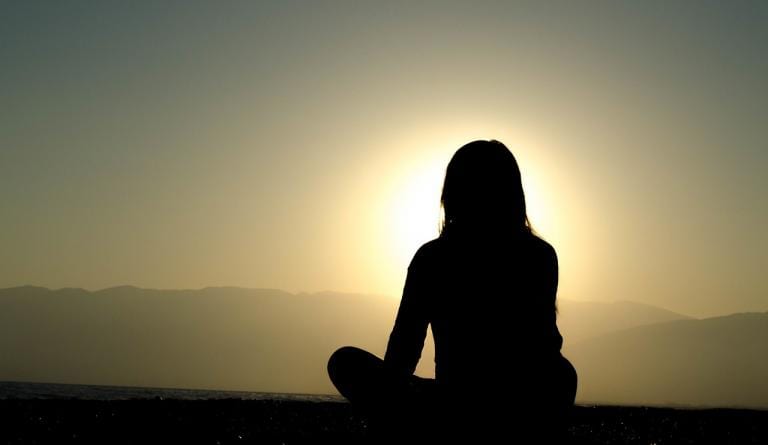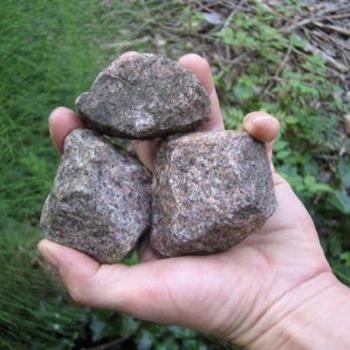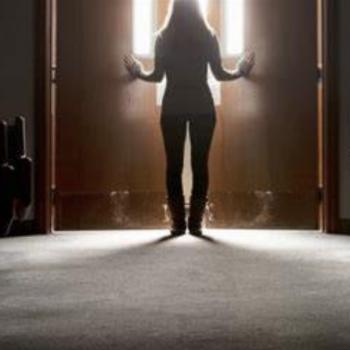
I began my summer.
I started running in the mornings with a good friend. I sprinted out the pain. I tried out different meet-up groups, I needed new friends. I would not let the betrayal destroy me.
Then one sunny day I went to a picnic on the lake near my apartment. Sitting in a group of people I’d never met before, I mentioned a city abroad where I had lived. The ears of a tall handsome man next to me perked up. “I’ve been there too!” he said.
We left the barbecue together and he asked for my number. We’ve been together since.
A Catholic Sister friend of mine said “I think meeting your boyfriend then was God’s way of apologizing for the priest.”
That was all several years ago. I was far from looking for a relationship at the time, but you never know what the universe is going to give you.
In the first two years after, I slowly began to date my new boyfriend, and learn how to trust again. Remarkably, I grew to love him in a short amount of time. A kind of love that is sustainable, peaceful, strong, gentle and open.
I worked hard and I didn’t think a lot about the Church. That spring was so heavy, when it was over I just needed to live again. My body couldn’t take any more abuse, it only needed love.
And then, after 2 years, I began a new job in the neighborhood where the priest used to live. I remember taking the bus there the first day, and a hole suddenly opening up inside me.
For a few weeks I struggled with the onslaught of grief and a new job. When I finally let it in, grief hit like a two-by-four and I was thrown into a world I could have never imagined.
Do you know what grief does to a body? I sure didn’t.
All over my back, giant tender welts of energy would form. I only discovered them one day I wasn’t feeling well and my boyfriend offered to give me a back rub. As he pressed his hands into my skin a knife-cut of pain would emerge and I would remember things I’d blocked out. The intimacy and trust I’d had with the priest, and how safe I’d felt, before his sudden betrayal.
“Take care of your body. Stay warm,” my friend who understood grief, had told me. I truly didn’t understand what she meant until months into my struggle.
Grief brought fatigue. I was too tired to exercise. I would struggle to do an hour of work a day, feeling my brain absorbed in remembering, in working through the intensity of the past. I guilted myself for not being stronger, for not being “over it.” Those first months, I just didn’t know what was happening to me. I couldn’t accept that I still felt so many things surrounding the experience. I was in an incredibly healthy, loving, trusting, life-giving relationship. Why did I have to think about that asshole in my past?
Just being present to grief is a job in itself. I do not think I could have let it in – let the grief, and trauma pour out of me if I didn’t have a flexible job at the time, and a partner with a herculean power to just be present to my agony. I think that is why it took me two years to feel. My body and relationship were finally strong enough for it.
Setting boundaries on grief
Last year my boyfriend and I decided to move in together. I prayed so hard that the grief would leave me by the time I needed to be fully present to him, to the process of cohabitating. I wanted it to be over. I fought grief. For a few months, as we first lived together, I didn’t allow it in, though it appeared on my skin in the form of eczema, and in my guts in the form of constipation. I can now admit, it was a pretty hot, difficult summer. Still, hidden away, I thought grief was “over.”
Then, the Pennsylvania Grand Jury report on sexual abuse of minors by clergy dropped. And my flashbacks began.
I lay in the fetal position in bed next to my boyfriend last August, my mind screaming with images of the survivors on stage as the Pennsylvania Attorney General described the myriad of abuse and cover-up. I read their stories, listened to their testimonies. The patterns were all so similar. The spiritual abuse, the secrecy, the absolute power of the clergy to shape the narrative.
This time, I had learned from one of the sages of our time, novelist Elizabeth Gilbert, how to dance with grief. Grief, is an energy that if not released, only burrows deeper, she said. I literally began to dance and run it off.
I also finally stopped being afraid of my own voice. Through a myriad of strong female writers, singers and friends, I was inspired to find my own truth through my pen. Why was the report on sex abuse of minors freaking me out so much? Why did I feel like an abused woman, totally out of control? The relationship with the priest had been consensual. I decided it was time to explore my relationship with the Catholic Church.
I grew up in a super conservative diocese, and was subjected to spiritual abuse as just status-quo religious education. But I’d grown out of it, I’d thought, in progressive, eccumenical and various international and or witchy spiritual settings. Yet, as I worked through the intense pain the flashback brought up, I had to access the reality that the way I’d been treated by my priest-lover, hearkened back to my childhood, and was totally acceptable in the Roman Catholic hierarchy. My experience was in fact a representation of the entire system of clericalism.
Priests are allowed to have affairs. They are allowed to be indignant that sex is “not allowed,” and partake in it anyway. Being secretive is status-quo. Priests are elite and their status is fetishized. They are allowed to use people and to go to confession. To commit crimes and say “the devil made them do it,” as our Pope recently said.
For my entire adult life I’ve toed the insider/outsider line in the Church. But that fall, I accepted the outsider status. Now, I more closely identify with the survivors of abuse, than as a friend of the powerful.
The truth is, I’ve had a number of good friends who are priests. I’ve thought of myself as an insider for a long time. I’ve deeply benefited from the Church. And that status kept me from fully seeing. I’ve always been a strong advocate for women’s ordination, and for reform. But it really took the experience of becoming a victim of the hierarchy’s instability to truly see it for what it is – an utterly decrepit system, that’s just not going to be reformed from within.
Recently, on a listening tour, Cardinal Blase Cupich of Chicago told parishoners in a Chicago suburb that the real victims of the clergy sex abuse crisis are the priests. Cupich has been on the forefront in recent Vatican panels and discussions in regard to the sex abuse crisis. He is generally regarded as being one of the “Pope Francis-esq” Cardinals.
Disappointing doesn’t begin to capture how awful it feels to constantly be reminded:
“They just don’t get it.”
We need to realize that as long as priests are powerful, as long as the clergy is “celibate,” all-male and based on a hierarchial system, it’s going to keep defending itself and uphold the institution. Why? Because if you benefit from a system, you’re not going to want to change it, and are likely incapable of seeing.
An illuminating example of this was James Martin’s recent response to James Carroll’s piece “Abolish the Priesthood,” in The Atlantic. What I took from Carroll’s piece is essentially a proposal to restructure the way an institution is run. A reasonable discussion, considering the state of the Church.
But Martin responded, in this instance like in many other instances related to the clergy, as if he was personally being attacked. Now, the poor man is constantly being attacked by psychopaths at ChurchMilitant and the like for various justice issues he supports. I’ve been a big fan of his, coming from Jesuit-circles myself, for his work advocating for LGBTQ people, migrants, etc. However, his blindspots are gaping, because he benefits from the system. The Jesuit all-male-club that I know well, absolutely blinds his ability to see outside of it. His article also showed the depth of the systemic ignorance. I almost couldn’t believe America published a piece that was so transparent.
And now, I see it all, and I don’t want to be close to the power anymore. I stand with the survivors of clergy abuse, all women who are second-class and every brave soul who has stood up and said “No.” The institution is not a sacred cow, the institution is not God. Grief and trauma gave me new eyes, and despite the pain, they are a remarkable gift.
The lightning-strike of trauma has hit me a me a few times now.
It happened again recently, when I was planning a work conference with someone who knew the priest I dated. Having to be in the presence of someone who could casually call him up on their phone, struck me at my core. As always with my flashbacks, my digestive system stopped functioning properly, my guts became fire, and I stopped being able to poop like a healthy human. The tumors of grief returned to my back, this time, more pronounced than ever. I felt like I was one step away from an anxiety attack. I clung on to my partner, in my mind begging him not to leave me like the last one did.
So I let it determine my work flow. I moved slowly, honoring my limitations. Early on when grief began to live inside me, I had no idea how to continue working, continue living my life in its suffocating presence.
“Maybe grief will teach you how to pace yourself,” one of my wise women told me.
Elizabeth Gilbert wrote that when we experience grief, that all we can do is to welcome this incredible force of energy in the universe, to let it do what it needs to do. She said we should bow to its force, and let it transform us. It has taken me nearly a year and a half living in and out of grief to finally settle in its intensity, to stop fighting it.
“I AM WILLING” Gilbert says, we must say to grief. She is right. To resist is to only hurt ourselves. But to accept the pain, is to accept the gift of growth, truth and insight. It is to accept the unbelievable gift of living our lives to their fullest truths. Grief, says Gilbert, is what we pay for love. What else is this life about?
Through my indignation of having to continue feeling such pain, when I stopped and said ”YES,” I did grow so much. I did learn things I probably could not have learned any other way. I followed the spirit of God through everything, and though I often questioned what was happening, I never questioned that she was guiding me, walking side by side through the haze.
So here’s the big thing for me: Losing faith in an institution is not the same as losing faith in God. And just to be clear, I will not give the credit of ALL these revelations to that priest. He only broke open a window that was already very cracked. I simply followed the spirit of love as best I could and this is where she took me.
So let’s get over this “lapsed Catholic” nonsense. We can believe in God and not believe in an institution. It doesn’t have to be horrifically sad to “leave the Church”, and it really is that simple. Nobody has to be in the in-group or out-group to define their human worth. We all belong to God and are allowed to explore this vast universe of spirituality.
But let’s stop pretending these men have all the answers. There is too much goodness and life to be lived to be caught up in that nonsense.
I look forward to a future, as described by the great folk singer Sara Thomsen, as flying in and out of spiritual homes. To absorb the wisdom throughout our incredible, sacred, God-soaked world. To take in the good of tradition, letting the bad slide away.
And I say as proof that life will teach us more than we bargain for if we have the courage to listen, to quote a wisdom sister: “Wherever the spirit leads, go. If she has led you there, she surely will not abandon you.”
What I Learned from Dating a Catholic Priest is a submission from a contributor who has asked to remain anonymous.
Image courtesy of Pixabay.












